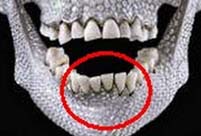 Deng Xiaoping: 'I have a clear conscience all my life'
Deng Xiaoping: 'I have a clear conscience all my life'
 Xi Jinping: 'The people are our strength'
Xi Jinping: 'The people are our strength'
 Amazing cliff diving in cold winter
Amazing cliff diving in cold winter
 Enjoy Sochi 2014 in slow motion
Enjoy Sochi 2014 in slow motion
 University student sentenced to death for poisoning roommate
University student sentenced to death for poisoning roommate
 Chinese lunar New Year celebrated in San Francisco
Chinese lunar New Year celebrated in San Francisco
 Taiwan Lantern Festival 2014
Taiwan Lantern Festival 2014
 Haiyang Yangge: make up
Haiyang Yangge: make up
 China's top 10 richest cities
China's top 10 richest cities
GUANGZHOU, Feb. 28 (Xinhua) -- Bribery accusations against a tycoon-turned-convict have focused China's collective national attention on loopholes in the judicial system and the dearth of supervision.
Zhang Hai, former chairman of beverage company Jianlibao, was sentenced to 15 years in 2007 when found to have swindled more than 33 million U.S. dollars from company funds. His sentence was reduced from 15 years to 10 years on appeal in 2008. His prison term was then cut by another four years while he was behind bars.
The reduction on appeal came about after Zhang obtained crucial information from other suspects and offered it as his own contribution to the police investigation, according to a statement by Supreme People's Procuratorate (SPP) on Monday,
While serving his sentence, through outside connections and by arranging to have prison and justice officials bribed, he fabricated documents on his good behavior and claimed two further reductions.
Zhang was released in 2011 and promptly went overseas with his girlfriend Huang Lu. Huang is accused of bribing the officials concerned.
Twenty-four people are being, or have been, investigated for their involvement in Zhang's manipulations: a motley crew from the judiciary and prison service, detention center employees, court officials, lawyers and various others.
Zhang's case might be grabbing the headlines, but he is far from the only crook trying to escape of the embrace of the state through bribery, fabrication and forgery.
LOOPHOLES
The commutation system might have been improved in recent years, but there are still more than enough loopholes for slippery characters like Zhang to slither through.
In Zhang's case, judicial officers offered "professional advice" while colluding with corrupt prison guards, lawyers and judges.
"Poor management of information reported by convicts is one of the prime causes of judicial corruption," said a prosecutor, off the record.
According to the source, evidence from convicts generally passes directly from the prison to the police, skipping several investigative steps which apply to evidence obtained by other means, and bypassing prosecutors.
Commutation and probation are usually matters of paperwork rather than court hearings. Risks of escorting convicts and manpower shortages at courts mean only about 20 percent of such cases go to court, according to Chen Dongmei, a presiding judge at Guangzhou Intermediate People's Court.
Jurists suggest that evidence provided by convicts seeking commutation should be registered and investigated by both procurators and the courts. The information should be shared on an open platform in the judicial system.
"Public supervision is another way to avoid judicial corruption." said Du Xiaojun, of Guangdong University of Foreign Studies law school. Du believes that case details should be open to the public on court websites.
Since the beginning of the year, Guangdong Provincial High Court and Guangzhou Intermediate People's Court have posted information on commutation and probation on their websites before they rule, though the information is often quite vague and without specific case details.
REGULATIONS
Following a number of cases like Zhang's, authorities are determined to end this kind of judicial corruption.
According to the SPP, details of commutation, parole and serving of sentences outside prison will be made public.
Current law states that remission applications should be submitted to the courts only by penal institutions, and the whole procedure supervised by procurators.
To curb abuse of power in remission, law enforcers will have to sign-off each procedure and will be held responsible. Regular inspections will be conducted nationwide.
China's legal machinery is now trying to arrest and extradite Zhang and Huang. Their whereabouts, if even they are known, have not be revealed by the SPP. (Mai Yizhu and Zhan Yijia contribute to the reporting from Guangzhou)
 Chinese Dream: the Chinese Spirit and the Chinese Way
Chinese Dream: the Chinese Spirit and the Chinese Way 51 bronze sacrificial utensils unearthed in Shaanxi
51 bronze sacrificial utensils unearthed in Shaanxi Most gorgeous female celebs in Chi-pao
Most gorgeous female celebs in Chi-pao Second round of test kicks off at Beijing Film Academy
Second round of test kicks off at Beijing Film Academy Ancient Qiang people had vertically grown teeth
Ancient Qiang people had vertically grown teeth Top 10 Chinese youth’s favorite seaside destinations
Top 10 Chinese youth’s favorite seaside destinations Traditional Tibetan clothing tailors
Traditional Tibetan clothing tailors In photos: Unveiling Taishan station
In photos: Unveiling Taishan station Beautiful moments of family reunion
Beautiful moments of family reunion Chinese warplanes C919 to appear at Singapore Airshow
Chinese warplanes C919 to appear at Singapore Airshow Ruins of Shang Dynasty's structure unearthed in Shaanxi
Ruins of Shang Dynasty's structure unearthed in Shaanxi  Intercity high speed train in operation
Intercity high speed train in operation Severe coldness freezes large parts of China
Severe coldness freezes large parts of China  Beautiful moments of Sochi
Beautiful moments of Sochi  It's not just performing this year
It's not just performing this yearDay|Week|Month